
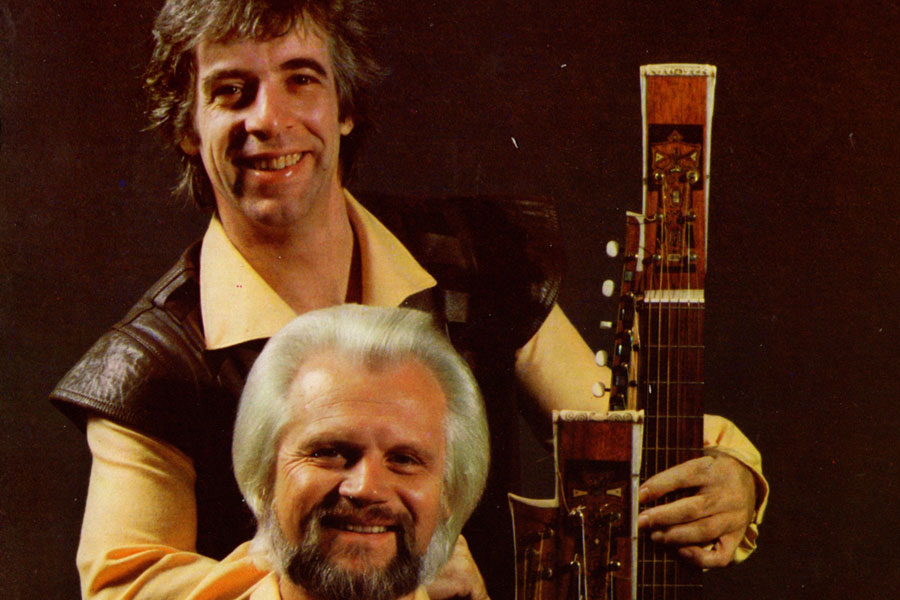
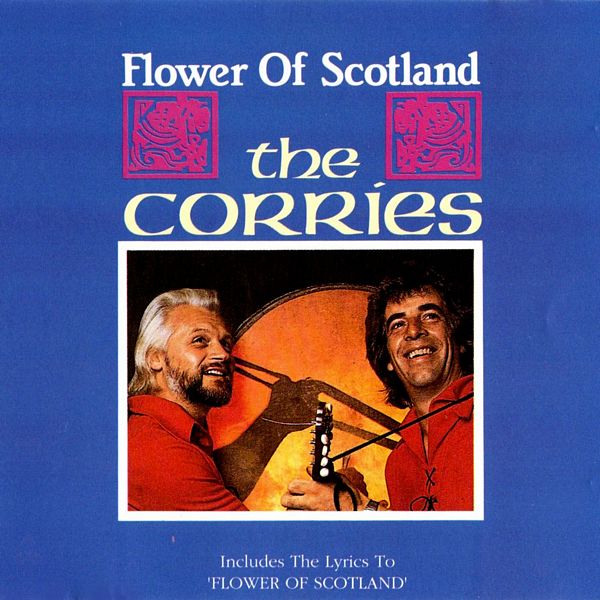 |
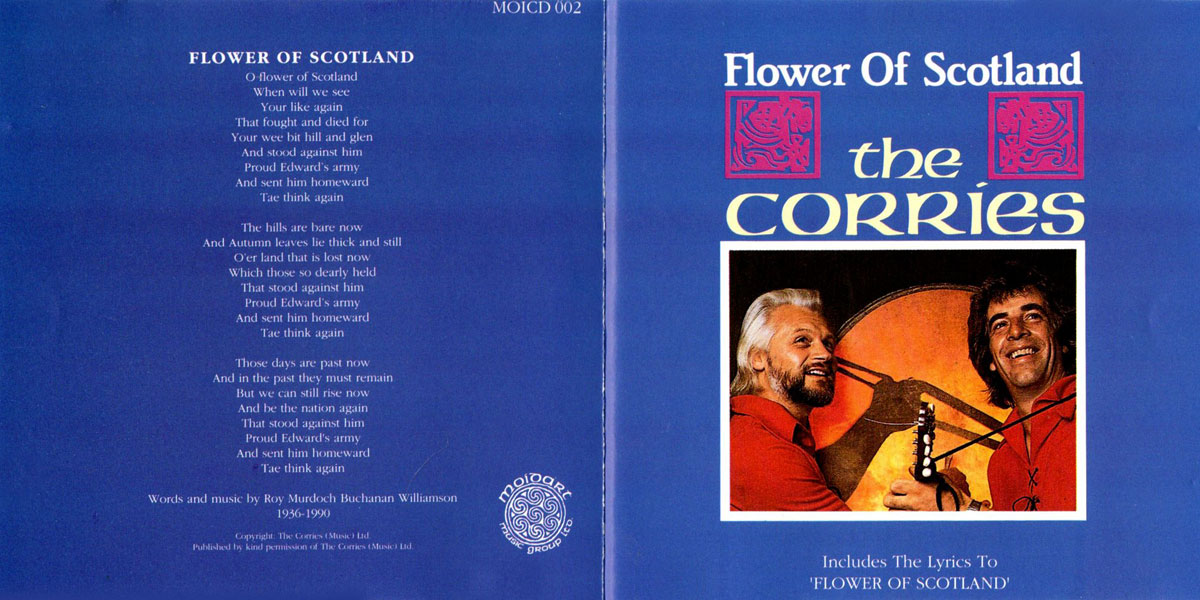
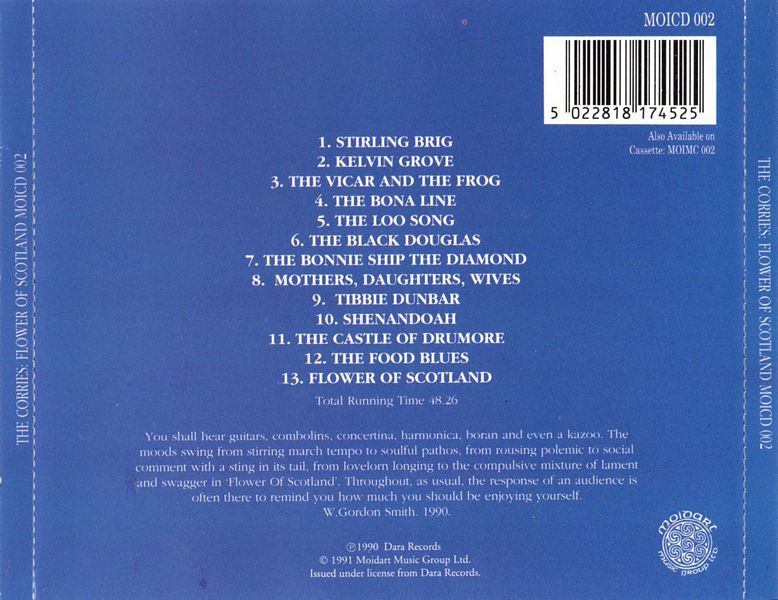 |
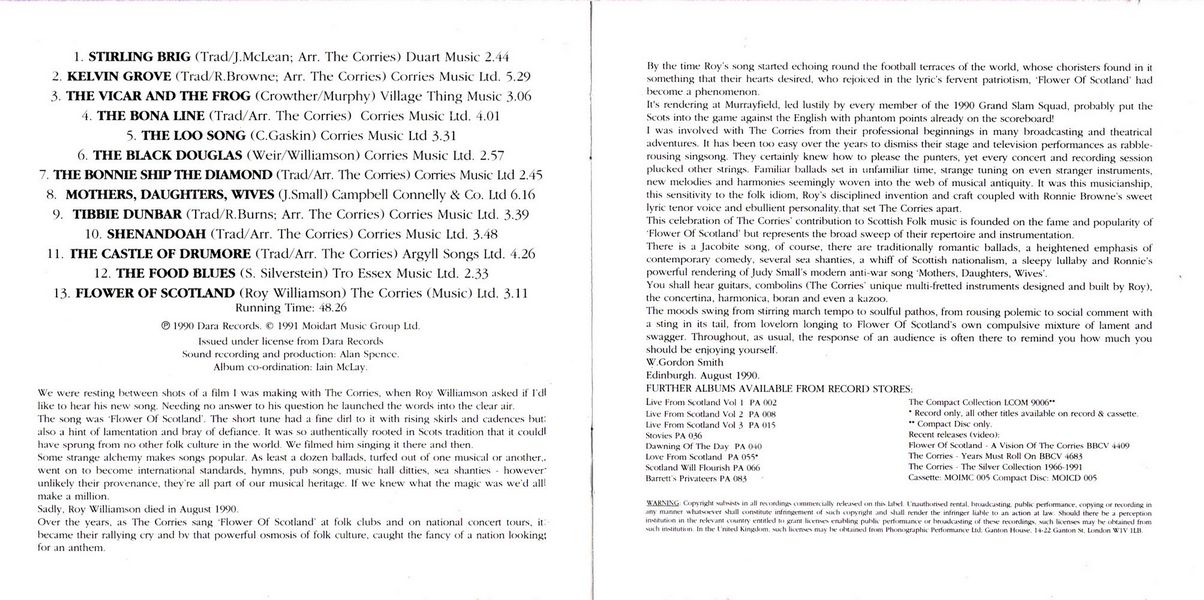
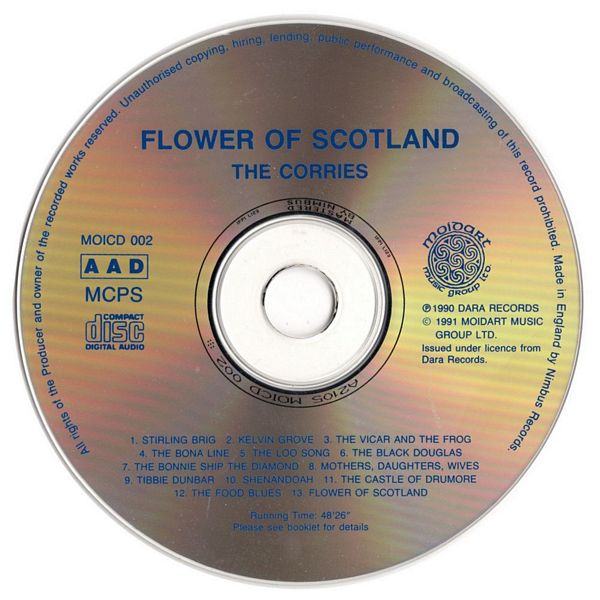 |
Sleeve Notes
We were resting between shots of a film I was making with The Corries, when Roy Williamson asked if I'd like to hear his new song Needing no answer to his question he launched the words into the clear air. The song was 'Flower Of Scotland'. The short tune had a fine dirl to it with rising skirls and cadences but also a hint of lamentation and bray of defiance. It was so authentically rooted in Scots tradition that it could have sprung from no other folk culture in the world. We filmed him singing it there and then.
Some strange alchemy makes songs popular. As least a dozen ballads, turfed out of one musical or another, went on to become international standards, hymns, pub songs, music hall ditties, sea shanties however unlikely their provenance, they're all part of our musical heritage. If we knew what the magic was we'd all make a million.
Sadly, Roy Wiiliamson died in August 1990.
Over the years, as The Corries sang 'Flower Of Scotland at folk clubs and on national concert tours, it became their rallying cry and by that powerful osmosis of folk culture, caught the fancy of a nation looking for an anthem.
By the time Roy's song started echoing round the football terraces of the world, whose choristers found in it something that their hearts desired, who rejoiced in the lyric's fervent patriotism. 'Flower Of Scotland' had become a phenomenon.
It's rendering at Murrayfield, led lustily by every member of the 1990 Grand Slam Squad, probably put the Scots into the game against the English with phantom points already on the scoreboard! I was involved with The Comes from their professional beginnings in many broadcasting and theatrical adventures. It has been too easy over the years to dismiss their stage and television performances as rabble-rousing singsong. They certainly knew how to please the punters, yet every concert and recording session plucked other strings. Familiar ballads set in unfamiliar time, strange tuning on even stranger instruments, new melodies and harmonies seemingly woven into the web of musical antiquity. It was this musicianship, this sensitivity to the folk idiom, Roy's disciplined invention and craft coupled with Ronnie Brownes sweet lyric tenor voice and ebullient personality that set The Corries apart.
This celebration of The Conies' contribution to Scottish Folk music is founded on the fame and popularity of 'Flower Of Scotland' but represents the broad sweep of their repertoire and instrumentation. There is a Jacobite song, of course, there are traditionally romantic ballads, a heightened emphasis of contemporary comedy, several sea shanties, a whiff of Scottish nationalism, a sleepy lullaby and Ronnie's powerful rendering of Judy Small's modem anti-war song 'Mothers, Daughters, Wives'.
You shall hear guitars, combolins (The Corries unique multi-fretted instruments designed and built by Roy), the concertina, harmonica, boran and even a kazoo.
The moods swing from stirring march tempo to soulful pathos, from rousing polemic to social comment with a sting in its tail, from lovelorn longing to Flower Of Scotland's own compulsive mixture of lament and swagger. Throughout, as usual, the response of an audience is often there to remind you how much you should be enjoying yourself.
W. Gordon Smith Edinburgh August 1990